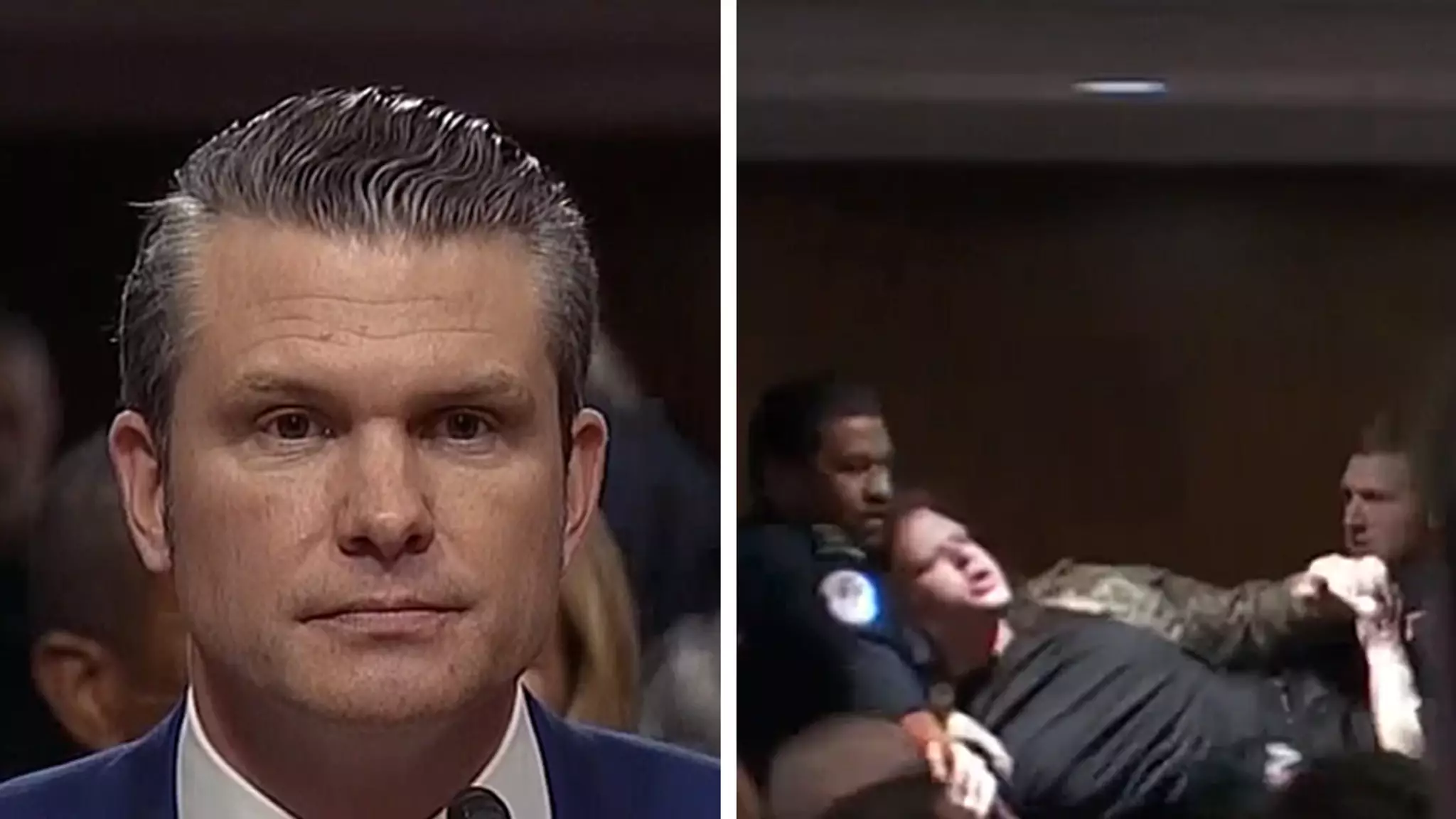The Senate confirmation hearing for Pete Hegseth’s nomination as U.S. Secretary of Defense quickly transformed into a battleground of conflicting ideologies on Tuesday morning. With the spotlight shining on Hegseth, known for his controversial views during his tenure as a weekend anchor at Fox News, the atmosphere became increasingly charged as several protesters disrupted the session. This chaos not only captured the attention of those present in the hearing room but also served as a microcosm of the broader national discourse surrounding military and gender roles in America.
Hegseth’s hearing commenced on a rather routine note, with the nominee expressing gratitude to his supporters by acknowledging that they had “literally and figuratively had his back.” However, this moment of camaraderie was swiftly undercut by the intrusion of dissenting voices. An elderly protester vocally denounced Hegseth as a “misogynist” from behind him—a tactical placement that likely aimed to maximize visibility and impact. Such bold disruptions exemplify the hostility some feel towards Hegseth’s controversial stances, particularly regarding women in the military, which have sparked nationwide debate.
The protests did not cease with one individual’s interjection. Reports indicate that at least three individuals were escorted from the hearing, illustrating a growing trend where public figures’ hearings become platforms for civil disobedience. Each demonstrator contributed their voice to a cacophony of disapproval, with one protester asserting her grievances before being removed, and another man evacuating the scene in a dramatic fashion courtesy of U.S. Capitol Police. Such instances reveal a significant tension within American politics, where the actions and ideologies of individuals in power are met with fervent opposition from those advocating for societal change.
Hegseth’s demeanor in the midst of these outbursts was notable. Unfazed by the calamity surrounding him, he chose to maintain his composure and continued to address the Senate floor once order was restored. This reaction may indicate that Hegseth anticipated the backlash, a possibility bolstered by his previous statements suggesting that military standards have been lowered for women and advocating against their participation in combat roles. These views are contentious, fostering deep divides on the issue of gender equality in the armed forces.
As Hegseth’s nomination moves forward, the implications of his philosophy surrounding military service, particularly regarding women, will likely influence the ongoing discourse about gender roles in the armed services. The protests may serve not only as a declaration of dissent but also as a reminder of the watchdog role that society plays in scrutinizing its leaders. His nomination is reflective not just of his personal beliefs but also of an administration that has often garnered controversy regarding its treatment of gender issues.
In the coming weeks, the interactions between Hegseth and his detractors may well redefine the narrative surrounding military policies related to gender. The incident at his confirmation hearing underscores the importance of vigilance in political settings and serves as an alarming reminder that issues of inclusivity and equality remain deeply polarizing within American society. As the Senate continues to deliberate his nomination, Hegseth’s past and the societal repercussions of his views will undoubtedly remain in the spotlight, igniting ongoing debates about the future direction of U.S. military policy.

